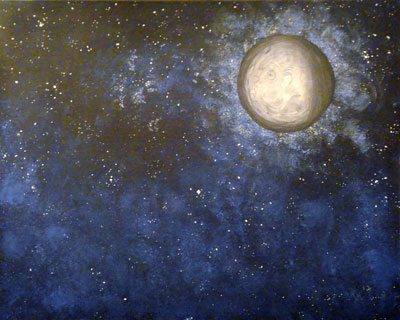All Nonfiction
- Bullying
- Books
- Academic
- Author Interviews
- Celebrity interviews
- College Articles
- College Essays
- Educator of the Year
- Heroes
- Interviews
- Memoir
- Personal Experience
- Sports
- Travel & Culture
All Opinions
- Bullying
- Current Events / Politics
- Discrimination
- Drugs / Alcohol / Smoking
- Entertainment / Celebrities
- Environment
- Love / Relationships
- Movies / Music / TV
- Pop Culture / Trends
- School / College
- Social Issues / Civics
- Spirituality / Religion
- Sports / Hobbies
All Hot Topics
- Bullying
- Community Service
- Environment
- Health
- Letters to the Editor
- Pride & Prejudice
- What Matters
- Back
Summer Guide
- Program Links
- Program Reviews
- Back
College Guide
- College Links
- College Reviews
- College Essays
- College Articles
- Back
No Moon, No Humans
Many people believe that the Sun is the single most important factor to life on Earth but, the Moon is just as vital. Humans couldn't live on Earth if the Moon didn’t exist. The Moon is just as significant as the Sun. The Sun is important because it heats the Earth up, keeps Earth in a revolution, and much more. The Moon has just as many effects on the Earth as the Sun. How the Moon was formed, tides and gravity, and life on Earth are all reason why the Moon is incredibly important.
Earth was mostly magma when the moon was formed. A planet the size of Mars hit the Earth causing pieces of the Earth to fall into space.When Moon was formed it was extremely close to Earth. The average distance between Earth and the Moon is 238,855 miles but it was less than half of that when it was formed. Joseph L. Spradley from Article magazine states, that all of the debris was forced together by the Earth’s gravity, forming the Moon. When the planet hit earth it left something behind. It left behind metals and debris that were crucial to helping parts of Moon form. The metals helped create some of the Moon’s gravitational pull. According to Bernard Foing from Astrobiology magazine, the Moon started to have effects on the Earth's tides soon after it was formed.
The Moon’s gravity pulls on the oceans, creating tides. Tides are the regular upward and downward movement of the ocean. Paul J. Henney from Astronomy Today says that the tides happen twice a day and are considered crucial to sea life. Jen Heldman, a NASA scientist, said “the gravity that controls Earth's tides also helped stabilize Earth's axis”. National Geographic stated, “If the moon hadn’t stabilized Earth’s axis the seasons would be very different and days could last only a few hours.” Days would be very short because the Moon’s gravitational pull slows down the rotation of the Earth. How long the days are affects the climate on Earth.
If there were no Moon, Earth would have severely diverse climate. The climate would be diverse because the Moon stabilized the axis,which controls the climate. Without the axis there would be no way to tell when each side of the Earth would face the Sun. Earth’s atmosphere would resemble Venus’. In a Discovery Channel documentary they talked about how there would be strong winds, a dense toxic atmosphere, and blistering temperatures. Hanne Jakobsen from Scientific Nordic says that the climates and atmosphere would make it extremely difficult for any life on earth. Out of everything the Moon does to affect Earth, this is the most important.
If the moon didn’t exist to stabilize the climate and tides, humans wouldn’t exist. Plants would have a difficult time growing, the atmosphere would be toxic, and days would only last a few hours. This is why the Moon is just as important as the Sun. Everything about Earth would be completely different if there was no moon.

Similar Articles
JOIN THE DISCUSSION
This article has 0 comments.
